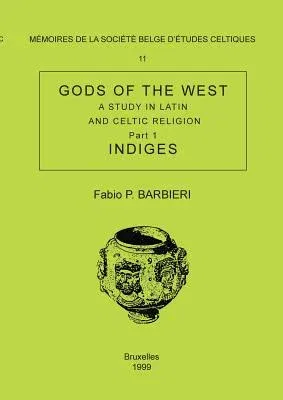Fabio P Barbieri
(Author)Mémoire n°11 - Gods of the West. A study in latin and celtic religion (Part 1 - Indiges)Paperback, 19 January 2015

Qty
1
Turbo
Ships in 2 - 3 days
In Stock
Free Delivery
Cash on Delivery
15 Days
Free Returns
Secure Checkout
Print Length
150 pages
Language
English
Publisher
Societe Belge D'Etudes Celtiques
Date Published
19 Jan 2015
ISBN-10
2872850708
ISBN-13
9782872850709
Description
Product Details
Author:
Book Format:
Paperback
Country of Origin:
US
Date Published:
19 January 2015
Dimensions:
29.69 x
21.01 x
0.81 cm
ISBN-10:
2872850708
ISBN-13:
9782872850709
Language:
English
Pages:
150
Publisher:
Weight:
376.48 gm

